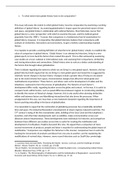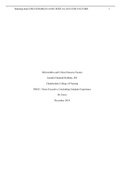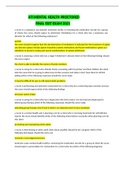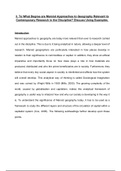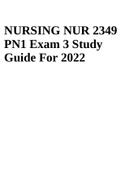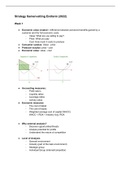Essay
DOES GLOBAL HISTORY HAVE TO BE COMPARATIVE
- Module
- History
- Institution
- Oxford University (OX)
This essay will assess the extent to which global history must be comparative by examining a working definition of ‘global history’, by assessing globalisation’s impact upon the perceived nature of time and space, and global history’s relationship with national histories. Most historians co...
[Show more]
